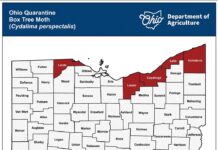SYRACUSE, N.Y. — A program to provide education and facilitate resources for horse farm businesses is trotting to horse owners throughout the state. The CCE Equine program was founded by Cornell Cooperative Extension of Saratoga County in 2005.
From the beginning, educators reached out to surrounding counties in the capital region, and are now attempting to make the service available statewide.
Topics
CCE Equine provides workshops and one-on-one visits with horse owners on topics such as horse health, pasture management, forage quality, farm worker training, business planning, marketing and others.
Equine education for adults is not a traditional offering of the county Cornell Cooperative Extension system, something CCE Equine was created to address.
The New York Farm Viability Institute provided grant funds to help launch CCE Equine, as well as funding to take the service statewide.
The New York Farm Viability Institute is a farmer-led nonprofit group that awards grants to projects that help farmers improve profitability and enhance the vitality of the state’s agriculture.
The Institute received funding from the state legislature and Department of Agriculture and Markets.
Partnership
CCE Equine recently partnered with the New York Farm Viability Institute to host listening sessions with horse owners around the state. The input was used to identify and prioritize opportunities and barriers to having a horse farm business in New York.
The priorities are used by the New York Farm Viability Institute board of directors as it makes project funding decisions. The results of those listening sessions are available at www.nyfvi.org by clicking “Farmer-Identified Opportunity and Barrier Reports.”
This fall, Cornell Cooperative Extension of Ontario County will hold a series of workshops for horse owners on farm business management, pasture management, animal waste and nutrition.
Subjects
Among the subjects to be covered in the monthly course are: paddock management, property tax programs (such as) exemptions (and), ag assessment, general liability for boarding, training and riding, equine nutrition, dealing with manure, record keeping such as tracking expenses and revenues and handling equine mortalities.
Ontario County’s resident horse population is 4,100 animals, with another 1,000 or more seasonal race horses. Working horses are the majority, about 60 percent, with pleasure horses being about 40 percent of the horse population. The working horses are raised as thoroughbreds, standard breeds, show, race and pull horses and include the Mennonite population.
The growing horse numbers bring demand for programming around agricultural property assessments, manure management, fencing, trailer hauling, elder horse care and more.
Priorities
Priorities include basic business management and pasture management. In addition to developing workshop templates, CCE Equine holds an annual Horse Symposium that attracts horse owners from throughout the northeast. They have several e-newsletters for equine interests.
For more information visit www.cceequine.org.










